Accounting in education
Each type of activity has its own specificity, which significantly affects accounting in a given field. Accounting for educational institutions is also characterized by its specific features and, in addition to aspects typical of other forms of activity, such as settling employee salaries, there are also areas related to grants and public subsidies. Running a non-public kindergarten or school does not require employing a full-time chief accountant, as is the case with a public institution, but the specificity of educational activities and frequent contacts with public administration bodies require the accounting company servicing a given non-public institution to have experience, attention and knowledge of regulations regarding educational activities, and in particular the rules for granting, settling and controlling the use of educational subsidies.
Educational subsidies are funds transferred by local government units to schools and kindergartens. Non-public institutions that meet the criteria specified in the Act may apply for financing of educational activities from commune (or poviat) funds. The basic condition for schools or kindergartens (both public and private) to apply for a subsidy is the fulfillment of compulsory schooling or learning. Pursuant to Art. 26 of the Act on the Financing of Educational Tasks, a subsidy is granted for each student in the amount specified in the regulations.
The subsidy awarded per student should be used only for the purposes specified in Art. 35 of the Act of October 27, 2017 on the financing of educational tasks, i.e. those relating to the implementation of tasks related to education, upbringing and care, as well as special education and social prevention.
What can the received grant be used for?
The purpose of the subsidy is specified in Art. 35 of the Act on the financing of educational tasks. The amounts received can only be used to implement the tasks of the school or kindergarten related to education, upbringing, care, special education and social prevention. The above-mentioned provision contains an exhaustive and closed catalog of expenses for which the school may allocate the subsidy. The following points will discuss the specific purposes of the grant.
1. Current expenses of a school, kindergarten or other institution – including:
-
remuneration for work for teachers, with the maximum amount in the case of non-public institutions being up to 150% of 12 times the average remuneration of a certified teacher,
-
other benefits provided for in the Labour Code, such as: severance pay, compensation and awards,
-
annual remuneration for employees employed under a civil law contract in an amount not exceeding the amounts for teachers.
2. Purchase of fixed assets, i.e. items whose useful life is over 1 year:
-
books and other materials for the library,
-
learning materials,
-
sports and recreational equipment,
-
school equipment, e.g. furniture,
-
other fixed assets.
3. Intangible assets and rights – e.g. licenses, rights, right to a residential premises, lease agreements.
The process of applying for an educational grant
The basic requirement in the process of receiving an educational subsidy is that the authority managing a given educational institution submits an application for a subsidy. The deadline for submitting an application for a subsidy is September 30 of the year preceding the year in which a given institution applies for a subsidy. For example, in order to receive a subsidy for 2024, the school should submit an application for a subsidy by September 30, 2023. To effectively submit an application for a subsidy, it is necessary to obtain an entry in the register of schools and educational institutions in advance. By September 30, you must also enter data into the educational information system (SIO) regarding the number of students eligible for subsidies.
Moreover, in the case of the so-called subsidies for educational results, within 30 days from the date of publication of the results of the vocational examination (in the case of vocational schools)/maturity examination (in the case of general secondary schools), information about persons who obtained a positive result of the above-mentioned studies must be submitted. exams and submit a secondary school leaving certificate or a professional diploma.
In the case of institutions such as: general secondary school for adults, post-secondary school or vocational school – in order to receive a subsidy for the education of graduates, information about graduates who have received a high school diploma or a certificate of professional qualifications must be submitted within 12 months of graduation.
The application for a subsidy, as well as other documents indicated above, is submitted by the entity managing the school/kindergarten to the authority registering a given school/kindergarten (i.e. to the commune or poviat where the institution has been entered into the register of schools and educational institutions).
Educational subsidy accounting
In order not to expose the facility to additional expenses, it is worth remembering to properly record the costs of received subsidies. Sometimes a small mistake or oversight can cost us a lot, and one mistake will cause many difficulties and will have long-term consequences. It should also be remembered that the accounting of a public or private kindergarten may look different depending on whether the managing body is a natural person or a legal person.
As part of the accounting services provided by ASK AUDIT in the field of education, we provide:
Conducting settlements of educational subsidies, recording non-grant income and expenses;
Assistance in preparing an application for an educational subsidy for a given year;
Assistance in preparing annual reports on the settlement of grants in accordance with the guidelines;
Preparation of documents for inspection;
Contact with tax offices, city and commune offices;
Managing human resources and payroll of the educational institution;
Calculating remuneration, maintaining HR documentation, including employees’ personal files;
Serving employees at ZUS, preparing tax returns;
Conducting matters related to the conclusion of civil law contracts and employment contracts, taking into account specific requirements for educational institutions. We provide comprehensive support in this area.
We also help to choose the right IT tools to support educational activities or scientific courses, in particular settlements and financial reporting.
If you run a non-public school, kindergarten or foreign language school, IT courses, or courses in other areas stationary or online, or if you are just planning to start this type of business and you do not know how to approach the accounting of financial and tax settlements of your business, contact us and ask ASK for advice.


